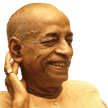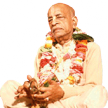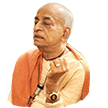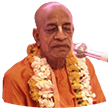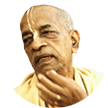What is Education - an essential subject: Difference between revisions
(Created page with "Category:Essential Subjects <!----------------------- edit below this line -----------------------> <!------------------------ begin introduction ------------------------>...") |
(Vanibot #0041: Moves Choose Another box to the end) |
||
| Line 2: | Line 2: | ||
<!----------------------- edit below this line -----------------------> | <!----------------------- edit below this line -----------------------> | ||
<!------------------------ begin introduction ------------------------> | <!------------------------ begin introduction ------------------------> | ||
In a nutshell, Śrīla Prabhupāda describes what is NOT education: any education that does not lead one to understand Kṛṣṇa is false education. In other words, education according to him is meant for preparing the human beings to understand God. The beginning of the educational process starts with one or two questions: "Who am I?" or "What is the goal of my life?". Without this first awakening Prabhupāda states that we are living as cats and dogs, with the same animal propensities. Therefore, with that kind of consciousness, what is the use of material education? The result of material education according to him is the development of the impetus for lording over material nature in the sense of "mine" and "I". So, all these ideas reflect the philosophy of ahaṁ mama, the conception that "I am everything". Then he concludes that persons conducted by such a conception of life can never get liberation from material bondage. | |||
To develop his philosophical proposal of an ideal society, Prabhupāda has the Vedas as his main literature and reference. From there he brings the '''[[Vaniquotes:Category:Education|Education]]''' system which divides the society into four varṇās and four āśramas. Each division has a status of quality, education, culture and spiritual advancement attained by practicing control of the mind and the senses. All these divisions are based on the particular nature of each individual person, not on the principle of birth. Prabhupāda extensively states that each division must be represented by personal vocation and not by birth. | |||
The spiritual education proposed by Prabhupāda, however, doesn't have the purpose of theorizing about philosophical issues only. According to him, one may be well versed in all the transcendental literature of the Vedas, but if he fails to be acquainted with the Supreme, then it must be concluded that all of his education is like the burden of a beast or like one's keeping a cow without milking capacity. Devotional service was his proposed for of education. He successfully trained people from different parts of the globe with different kinds of culture, about consciousness of God - also known as Kṛṣṇa consciousness. In this matter, no material education is required because, "by the mercy of the Lord, even a layman can compose prayers of the highest spiritual perfection". So, such spiritual perfection is not limited by material qualifications but is developed by dint of one's sincere endeavor to render transcendental service. Voluntary endeavor is the only qualification for spiritual education to take effect. | |||
Śrīla Prabhupāda's books, lectures, conversations and letters offer a comprehensive presentation of this essential subject as seen in the Vaniquotes '''[[Vaniquotes:Category:Education|Education]]''' category. An introduction from his books is given below in the following 16 quotes. | |||
<!-------- end introduction and don't touch next three lines ---------> | <!-------- end introduction and don't touch next three lines ---------> | ||
---- | ---- | ||
== Quotes from Srila Prabhupada's books == | == Quotes from Srila Prabhupada's books == | ||
<!----------------- edit quote boxes below this line -----------------> | <!----------------- edit quote boxes below this line -----------------> | ||
{{VaniQuotebox| | {{VaniQuotebox|This does not mean that human civilization should revert to animal life or that the human being should live naked in the jungles without any culture, education and sense of morality|They (animals) do not know how to cook or prepare foodstuff, yet they still live healthy lives more easily than the human being. This does not mean that human civilization should revert to animal life or that the human being should live naked in the jungles without any culture, education and sense of morality. An intelligent human cannot live the life of an animal; rather, man should try to utilize his intelligence in arts and science, poetry and philosophy. In such a way he can further the progressive march of human civilization. '''(Śrīmad-Bhāgavatam 2.2.4)'''}} | ||
{{VaniQuotebox|One may be well versed in all the transcendental literature of the Vedas, but if he fails to be acquainted with the Supreme, then it must be concluded that all of his education is like the burden of a beast|One may be well versed in all the transcendental literature of the Vedas, but if he fails to be acquainted with the Supreme, then it must be concluded that all of his education is like the burden of a beast or like one's keeping a cow without milking capacity. '''(Śrīmad-Bhāgavatam 2.9.36)'''}} | |||
{{VaniQuotebox|The four statuses and orders of human society - brahmanas, ksatriyas, vaisyas and sudras, as well as brahmacaris, grhasthas, vanaprasthas and sannyasis - are all divisions of quality, education, culture and spiritual advancement|The four statuses and orders of human society—brāhmaṇas, kṣatriyas, vaiśyas and śūdras, as wall as brahmacārīs, gṛhasthas, vānaprasthas and sannyāsīs—are all divisions of quality, education, culture and spiritual advancement attained by practicing control of the mind and the senses. All these divisions are based on the particular nature of each individual person, not on the principle of birth. '''(Śrīmad-Bhāgavatam 3.7.29)'''}} | |||
{{VaniQuotebox|Voluntary endeavor is the only qualification for spiritual perfection. Material acquisitions of wealth or education are not considered|By the mercy of the Lord even a layman can compose prayers of the highest spiritual perfection. Such spiritual perfection is not limited by material qualifications but is developed by dint of one's sincere endeavor to render transcendental service. Voluntary endeavor is the only qualification for spiritual perfection. Material acquisitions of wealth or education are not considered. '''(Śrīmad-Bhāgavatam 3.9.38)'''}} | |||
{{VaniQuotebox|The impetus for lording it over material nature is the sense of "mine" and "I". "I am the lord of all that I survey. So many things I possess, and I shall possess more and more. Who can be richer than I in wealth and education?"|The impetus for lording it over material nature is the sense of "mine" and "I". "I am the lord of all that I survey. So many things I possess, and I shall possess more and more. Who can be richer than I in wealth and education? I am the master, and I am God. Who else is there but me?" All these ideas reflect the philosophy of ahaṁ mama, the conception that "I am everything". Persons conducted by such a conception of life can never get liberation from material bondage. '''(Śrīmad-Bhāgavatam 3.5.44)'''}} | |||
{{VaniQuotebox|Student life is meant for acquiring the best education; household family life is meant for gratifying the senses, provided it is performed with a charitable disposition of mind, retirement from household life is meant for penance|Student life is meant for acquiring the best education; household family life is meant for gratifying the senses, provided it is performed with a charitable disposition of mind, retirement from household life is meant for penance, for advancement in spiritual life, and renounced life is meant for preaching the Absolute Truth to the people in general. '''(Śrīmad-Bhāgavatam 3.12.41)'''}} | |||
{{VaniQuotebox|Materialists are very proud of their advancement in education, in philosophical speculation and in scientific knowledge, but no one actually knows what the Absolute Truth is|Materialists are very proud of their advancement in education, in philosophical speculation and in scientific knowledge, but no one actually knows what the Absolute Truth is. The great sage Maitreya, therefore, recommends that to enlighten people about the Absolute Truth (tattva), devotees should preach the teachings of Śrīmad-Bhāgavatam throughout the entire world. '''(Śrīmad-Bhāgavatam 4.12.51)'''}} | |||
{{VaniQuotebox|Education does not mean having academic degrees only. One should execute what he has learned in his personal life|A learned man treats all women except his wife as his mother, looks on others' property as garbage in the street, and treats others as he would treat his own self. These are the symptoms of a learned person as described by Cāṇakya Paṇḍita. This should be the standard for education. Education does not mean having academic degrees only. One should execute what he has learned in his personal life. '''(Śrīmad-Bhāgavatam 4.16.17)'''}} | |||
{{VaniQuotebox|Anything that is done which does not lead to Krsna consciousness is a sinful activity, and any education that does not lead one to understand Krsna is false education. If Krsna consciousness is missing, one is simply engaged in false activities|The King was thinking that he was great for having performed so many sacrifices, but the great sage Nārada directly chastises him, informing him that his animal-killing only leads to his being puffed up with false prestige. Actually, anything that is done which does not lead to Kṛṣṇa consciousness is a sinful activity, and any education that does not lead one to understand Kṛṣṇa is false education. If Kṛṣṇa consciousness is missing, one is simply engaged in false activities and false educational pursuits. '''(Śrīmad-Bhāgavatam 4.29.49)'''}} | |||
{{VaniQuotebox| | {{VaniQuotebox|The people of the West are seeing their students becoming hippies, despite gorgeous arrangements for university education. The Krsna consciousness movement, however, is trying to convert misguided, drug-addicted students to the service of Krsna|The people of the West are seeing their students becoming hippies, despite gorgeous arrangements for university education. The Kṛṣṇa consciousness movement, however, is trying to convert misguided, drug-addicted students to the service of Kṛṣṇa and engage them in the best welfare activities for human society. '''(Śrīmad-Bhāgavatam 6.5.18)'''}} | ||
{{VaniQuotebox| | {{VaniQuotebox|The highest standard of education is knowledge of the science of Krsna. The standard of material education is sense gratification, but the highest standard of spiritual education is knowledge of the science of Krsna|"What is the highest standard of education?" Lord Caitanya began His inquiry, and Rāmānanda Rāya immediately replied that the highest standard of education is knowledge of the science of Kṛṣṇa. The standard of material education is sense gratification, but the highest standard of spiritual education is knowledge of the science of Kṛṣṇa. '''(Teachings of Lord Caitanya, Chapter 32)'''}} | ||
{{VaniQuotebox| | {{VaniQuotebox|The goddess of learning is decorated with fourteen kinds of educational ornaments, her intelligence is all-pervading within the four departments of the Vedas, her attention is always on the lawbooks given by great sages like Manu|The goddess of learning is decorated with fourteen kinds of educational ornaments, her intelligence is all-pervading within the four departments of the Vedas, her attention is always on the lawbooks given by great sages like Manu, and she is appareled in six kinds of expert knowledge—namely Vedic evidence, grammar, astrology, rhetoric, vocabulary and logic. Her constant friends are the supplements of the Vedas, the Purāṇas, and she is decorated with the final conclusion of all education. '''(Nectar of Devotion, Chapter 21)'''}} | ||
{{VaniQuotebox| | {{VaniQuotebox|His (Krsna) going to the school of Sāndīpani Muni was to show the people of the world that however great or ingenious one may be, he must go to higher authorities for general education|A man is called intelligent if he has a sharp memory and fine discretion. As far as Kṛṣṇa's memory is concerned, it is said that when He was studying in the school of Sāndīpani Muni in Avantīpura, He showed such a sharp memory that by once taking instructions from the teacher He immediately became perfect in any subject. Actually, His going to the school of Sāndīpani Muni was to show the people of the world that however great or ingenious one may be, he must go to higher authorities for general education. However great one may be, he must accept a teacher or spiritual master. '''(Nectar of Devotion, Chapter 21)'''}} | ||
{{VaniQuotebox| | {{VaniQuotebox|Students, for instance, prepare for two to five years in college, and the final test of their education is the examination. If they pass the examination, they get a degree|Students, for instance, prepare for two to five years in college, and the final test of their education is the examination. If they pass the examination, they get a degree. Similarly, in the subject of life, if we prepare for the examination at the time of death and pass it, then we are transferred to the spiritual world. Everything is examined at the time of death. '''(Easy Journey to Other Planets, Chapter 2)'''}} | ||
{{VaniQuotebox| | {{VaniQuotebox|If one does not ask, "Who am I? What is the goal of my life?" but instead follows the same animal propensities as cats and dogs, what is the use of his education?|If one does not ask, "Who am I? What is the goal of my life?" but instead follows the same animal propensities as cats and dogs, what is the use of his education? '''(Śrīmad-Bhāgavatam 7.6.16)'''}} | ||
{{VaniQuotebox| | {{VaniQuotebox|This is the beginning of self-realization. One must first understand how Brahman is present everywhere and how He is acting. This education is called brahma jijnasa and is the real concern of human life|This is the beginning of self-realization. One must first understand how Brahman is present everywhere and how He is acting. This education is called brahma jijñāsā and is the real concern of human life. Without such knowledge, one cannot claim to be a human being; rather, he remains in the animal kingdom. '''(Śrīmad-Bhāgavatam 7.12.16)'''}} | ||
<!----------------- edit quote boxes above this line -----------------> | <!----------------- edit quote boxes above this line -----------------> | ||
Srila Prabhupada's instructions on '''What is Education - [[Vaniquotes:Category:Education|explore more within this category]]'''. | |||
{{EsentialSubjectTotal}} | |||
<div style="float:left;"> | |||
{{EssentialSubjectnav}} | |||
</div> | |||
__NOTOC__ | __NOTOC__ | ||
__NOEDITSECTION__ | __NOEDITSECTION__ | ||
Latest revision as of 18:12, 22 November 2020
In a nutshell, Śrīla Prabhupāda describes what is NOT education: any education that does not lead one to understand Kṛṣṇa is false education. In other words, education according to him is meant for preparing the human beings to understand God. The beginning of the educational process starts with one or two questions: "Who am I?" or "What is the goal of my life?". Without this first awakening Prabhupāda states that we are living as cats and dogs, with the same animal propensities. Therefore, with that kind of consciousness, what is the use of material education? The result of material education according to him is the development of the impetus for lording over material nature in the sense of "mine" and "I". So, all these ideas reflect the philosophy of ahaṁ mama, the conception that "I am everything". Then he concludes that persons conducted by such a conception of life can never get liberation from material bondage.
To develop his philosophical proposal of an ideal society, Prabhupāda has the Vedas as his main literature and reference. From there he brings the Education system which divides the society into four varṇās and four āśramas. Each division has a status of quality, education, culture and spiritual advancement attained by practicing control of the mind and the senses. All these divisions are based on the particular nature of each individual person, not on the principle of birth. Prabhupāda extensively states that each division must be represented by personal vocation and not by birth.
The spiritual education proposed by Prabhupāda, however, doesn't have the purpose of theorizing about philosophical issues only. According to him, one may be well versed in all the transcendental literature of the Vedas, but if he fails to be acquainted with the Supreme, then it must be concluded that all of his education is like the burden of a beast or like one's keeping a cow without milking capacity. Devotional service was his proposed for of education. He successfully trained people from different parts of the globe with different kinds of culture, about consciousness of God - also known as Kṛṣṇa consciousness. In this matter, no material education is required because, "by the mercy of the Lord, even a layman can compose prayers of the highest spiritual perfection". So, such spiritual perfection is not limited by material qualifications but is developed by dint of one's sincere endeavor to render transcendental service. Voluntary endeavor is the only qualification for spiritual education to take effect.
Śrīla Prabhupāda's books, lectures, conversations and letters offer a comprehensive presentation of this essential subject as seen in the Vaniquotes Education category. An introduction from his books is given below in the following 16 quotes.
Quotes from Srila Prabhupada's books
Srila Prabhupada's instructions on What is Education - explore more within this category.
Vanipedia has now over 903 introductory articles compiled from Srila Prabhupada's books under the series titled Essential Subjects. All these articles can be seen in the Table of Content on the right side of this article and also here in this Umbrella Category. Browse through them to relish the breadth and depth of Srila Prabhupada's teachings - There is a subject for everyone.
